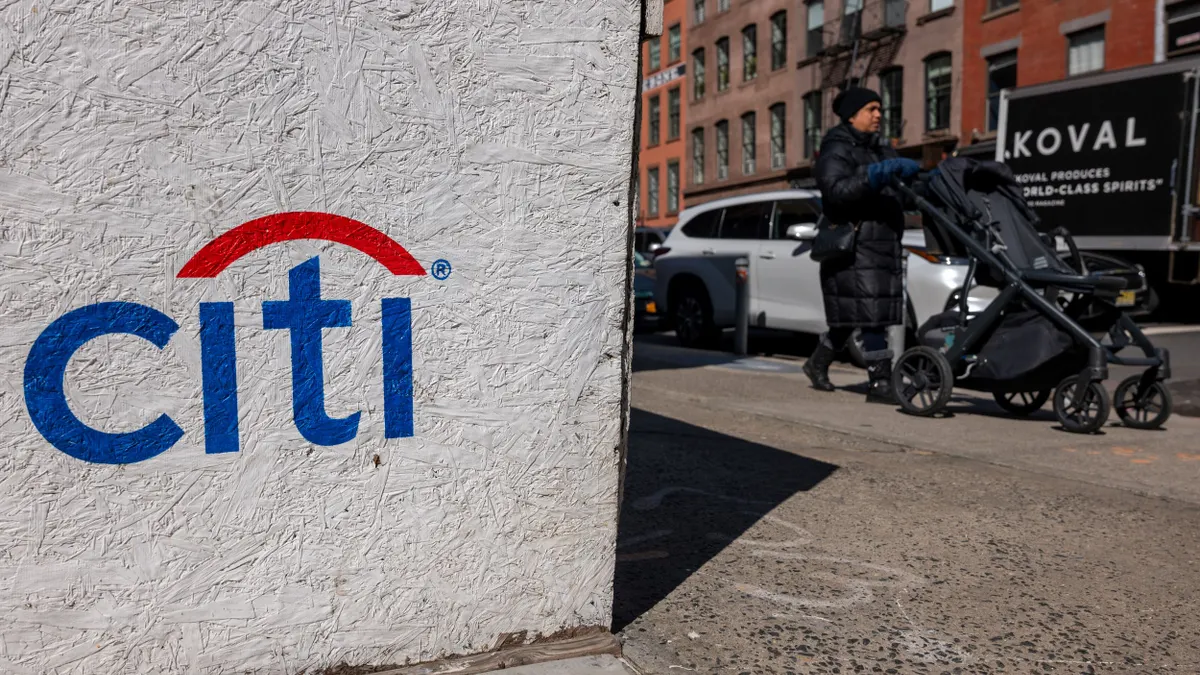A year ago, Silicon Valley Bank failed, spurring a crisis that took down at least two other banks, sent regional lenders’ value spiraling, and prompted competitors across the finance sphere to fight for upended clients.
The impact of SVB’s demise, though, was arguably felt most in the fintech space.
Mercury, a startup-focused neobank, worked swiftly on March 11 and 12, 2023, to launch Mercury Vault offering up to $3 million in Federal Deposit Insurance Corp. insurance, later expanding that to $5 million through its partner banks and their sweep networks. Customers who use Vault can have their money set up with Treasury accounts that give them access to the U.S. government short-term T-bills by Vanguard.
In the five days following SVB's collapse, more than 8,700 new customers came to Mercury with more than $2 billion in deposits, the San Francisco-based company said.
A year later, CEO Immad Akhund said Mercury’s market share has increased among early-stage startups due to bolstered awareness and a shift away from the failed bank, even though SVB’s assets have new owners. Mercury continues to launch new initiatives while focusing on its objectives, with startups occupying a big part of that.
“Mercury has been a startup all along, so we’re used to adversity,” Akhund told Banking Dive. “Even before this SVB and a March 2023 situation, we've been growing nicely. So, let's say the big thing that's changed over the last year is...it feels like our market share is a lot higher, especially among early-stage startups. SVB is still around, but it's no longer kind of this kind of 800-pound gorilla that was often the default choice in the startup world."
At the beginning of last year, Mercury had around 400 employees, but that number has grown to around 600 today. Mercury’s customer base grew 60% year over year, and six months after the SVB collapse, 92% of net new customers from March stayed with it, and their deposits held steady, the company noted.
MoneyLion, meanwhile, has diversified its banking relationships and technology to mitigate the risk following SVB’s failure.
MoneyLion CEO Dee Choubey said he thinks SVB was one of the few banks that truly understood venture debt, which was crucial for the broader capital allocation process within the tech hub. SVB served as a backbone, enabling a flow of capital that bridged the gap between venture capitalists and startups as they graduated from the initial funding rounds to an eventual public offering.
“It really kind of sent massive ripples through the ecosystem,” Choubey said. “I'd be lying if I said that it didn't create some consternation and a lot of stress that weekend. Because you always know theoretically that your systems are resilient, but in practice when millions and hundreds of millions of dollars are going through your pipes that weekend, the practicality of it is sometimes a little different.”
The New York City-based fintech had significant relationships with SVB on venture debt, cash management and treasury management. MoneyLion has diversified its banking relationships and technology to mitigate risk following SVB’s failure. It also brought in more bank partners. When SVB failed, MoneyLion switched processing to other banks with no adverse impact on customers.
“The way we've changed operationally over the years, we've become even more resilient. You could tell me Bank X is failing and we have a whole process for mitigating that risk. So, a lot more operationally resilient and even more than we were a year ago,” Choubey said.
Updated business model
Fintechs are trying to bolster their customer base by offering products that speak to the changing digital landscape.
MoneyLion is focusing on its artificial intelligence-powered personal finance management insights — a tool that would let customers have conversations as one would with ChatGPT, answering questions like where users have invested and how and when they saved. The fintech aims to give its customers every tool that have different inflection points either through its consumer app or on a white-label basis for anyone in the digital world, Choubey said.
“All of that together — the go-to-market is something that we've been really working on to make the business model a lot more resilient from where it was a year ago,” he added.
MoneyLion reported a 60% gross margin in 2023, compared with 57% in 2022. The company expanded its distribution capabilities by collaborating with Ernst & Young to bring innovation in the banking space.
Akhund said he thinks AI will be more useful in the back-office side of fintechs, like fraud detection, rather than asking chatbots to transfer money. Mercury built its platform so customers can use it for all financial workflows across their entire teams, leading to the creation of Mercury Treasury and Venture Debt and, more recently, the launch of credit card IO. The credit card launched in September 2022 and has been designed to empower founders and finance teams and to help them scale their business. The company is seeing consistent IO growth month over month, it said.
Companies like Mercury are “becoming like kind of financial super apps” — bundling features on both software and financial sides, Akhund said.
What to expect
Choubey said he thinks the bank-fintech partnership framework is robust, and these partnerships have grown due to banks’ need for digital capabilities, despite the scrutiny.
However, Akhund said that since this is an election year, he doesn’t expect new regulations, but regulators might work with banks to determine the right partnership model.
Akhund said he thinks fintech innovation will grow in the next decade despite its current lull.
There will be probably a few more sponsor banks pulling out of the space, he said.
“Along with that, there will be some fintechs that will also pull out of the space partly because the funding environment for fintechs is not great. And obviously, a lot of startups are basically like an experiment and not all experiments succeed. So, I think that's how I see this year playing out — a reinvestment in terms of who remains in the area and who comes out on the other side,” Akhund noted.






















